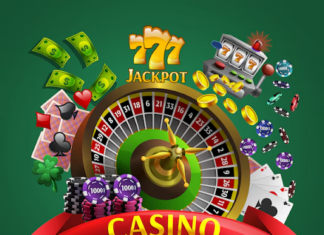In this article I distinguish 3 of the most widely recognized types of uneasiness (counting social nervousness, execution tension, and decision uneasiness), just as 5 of the most well-known reasons for uneasiness (counting qualities, wellbeing, brain research, history, and condition).
Nervousness issues influence between 13-18% of everybody, except truly we as a whole encounter various types of tension for the duration of our lives. A restless mental state is regularly characterized by sentiments of dread, stress, disquiet, or fear. It is regularly future-arranged, implying that cause of anxiety are coordinated toward potential dangers or negative encounters that haven’t yet occurred.
In reality, a large portion of us experience tension in changing degrees relying upon the circumstance. It isn’t generally an awful thing, as some tension can inspire us to rethink or reconsider a circumstance before acting. Be that as it may, unreasonable nervousness can be devastating to a point where we can’t conclude, we don’t make a move, or we jumble up when the occasion at long last comes.
Various FORMS OF ANXIETY
Tension can come in a wide range of structures relying upon what it is that triggers our sentiments of dread, stress, or fear. These three kinds of nervousness are frequently the most well-known sorts talked about in current brain research, however there are likely different kinds of tension that don’t fit so conveniently in these classifications (explicit fears, existential uneasiness, demise tension, and so on.) Nevertheless, these are the kinds of uneasiness I will allude in this post:
Social Anxiety
Social uneasiness is a dread or stress over social circumstances. We may feel awkward or maintain a strategic distance from situations that include huge gatherings of individuals (like school, work, open talks, secondary school reunions, and so forth.) or we may even feel awkward or keep away from particular sorts of 1-to-1 connections (like prospective employee meet-ups, dating, associating with an outsider just because, or meeting a VIP).
The vast majority feel a tension in these circumstances however it changes extraordinarily from individual to individual. A few people may feel progressively great in gatherings, while others feel increasingly good during 1-to-1 collaborations. A few people may feel progressively great conversing with recognizable countenances, while others feel increasingly good gathering somebody just because. It truly relies upon the earth and the individual.
Execution Anxiety
In contrast to social nervousness, execution uneasiness is a dread or stress over exhibitions, for example, an understudy taking a last test of the year at school, or an artist performing in front of an audience, or a competitor playing at a major sporting event. We stress that we won’t give a valiant effort, or that we will wreck or lose, and that tension can really hinder us from performing to our most extreme limit (or in any event, performing by any means, for instance because of an excess of “stage trepidation”).
Rather than concentrating on what we have to complete to succeed, we become increasingly centered around all the ways things that may turn out badly. This can here and there become an unavoidable outcome. Our considerations make us increasingly awkward and not well arranged, and afterward those contemplations lead to activities that strengthen our past originations.
Decision Anxiety
Decision tension is an uneasiness established in vulnerability when deciding. Actually none of us can act or settle on a choice with full information on what the outcomes will be; the universe is simply excessively unpredictable, and our brains aren’t prepared to do totally getting it. Because of this, we frequently feel tension when settling on a significant choice in our life, since we don’t have the foggiest idea whether we will settle on the most ideal decision.
Some regular important choices we have to make for the duration of our lives include: what school to go to, what vocation to seek after, who to date/wed, where to live, what sort of vehicle to drive, and so forth.
We settle on choices regular and we need to confront the “open door costs” from picking one alternative over another. Some examination recommends that the more alternatives we need to browse, the more troublesome it is to settle on a choice. They guarantee that having more alternatives prompts a higher “open door cost” (hypothetically: the more we need to look over, the more we pass up), and whenever this open door cost turns out to be too large we can frequently experience the ill effects of loss of motion by examination. Loss of motion by investigation restrains us from settling on ANY choice since we are so lost on what the correct strategy is.
I’m certain that you’ve encountered these sorts of tensions through your life to changing degrees. That is acceptable. A ton of our uneasiness can be solid and regular. Notwithstanding, when it begins meddling with how we need to carry on with our carries on with, at that point it can turn into an issue that we have to manage. The initial move toward managing this issue is recognizing a portion of the possible reasons for our uneasiness, at that point we can figure out what are the most ideal approaches to treat it.
THE MOST COMMON CAUSES OF ANXIETY
There are a great deal of variables that can add to our tension (and our psychological well-being all the more for the most part). In this area, I will talk about the absolute most normal reasons for tension, and furthermore some potential treatment alternatives for every one. In any case, it’s critical to recall that in light of the fact that our tension can be because of such a wide cluster of various factors, it is regularly better to coordinate a few treatment alternatives all the while.
Qualities
Certain quality variations might be related with more noteworthy degrees of uneasiness. We as a whole have an alternate organic make-up, and now and then people may encounter expanded degrees of tension for no other explanation yet that it is inserted in their hereditary code. These qualities basically cause compound irregular characteristics in the mind that pioneer to your uneasiness.
Treatment alternatives: If your tension is driven by your science it might be conceivable to get recommended drug from an expert therapist. Be careful, nonetheless, that huge numbers of these drugs can have negative reactions (you may experience a few distinct prescriptions before discovering one that works best – a decent therapist will help you through this procedure). Likewise be careful that if your uneasiness is brought about by different components than prescription will just fill in as a convenient solution, yet it won’t settle the more profound issues throughout your life. You may need to enhance your drug with different medicines.
Wellbeing
Tension can likewise be caused because of physical idleness and terrible eating routine. At the point when we don’t treat our bodies right then that can regularly affect our psychological states.
In the event that we don’t eat adjusted dinners and get all the nourishment we need, that regularly implies our cerebrums aren’t getting enough sustenance either. This hinders our minds from practically as effectively as they could be, which could turn into a supporter of more significant levels of tension.
Physical action is additionally vital to both our physical and psychological well-being. Running, playing sports, heading off to the rec center, moving, and anything that gives practice is an incredible method to diminish pressure, anxiety problems and uneasiness that may develop consistently or weeks. It’s significant that we have an approach to channel hormones (like adrenaline and cortisol) in positive and solid ways, else they show themselves as stress and nervousness.
Treatment alternatives: If you don’t as of now take great consideration of your body, you’d presumably be astounded of exactly how substantially less focused and on edge you’d be on the off chance that you began caring more for your wellbeing.
Take a stab at doing seemingly insignificant details like supplanting soft drink with water, eating less cake, going for a run a few times each week, or being increasingly aware of what you eat, and you’ll start to feel better both genuinely and intellectually.









